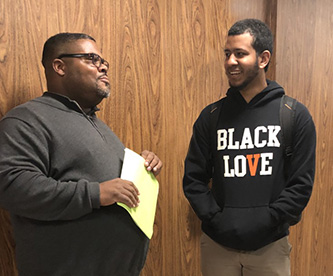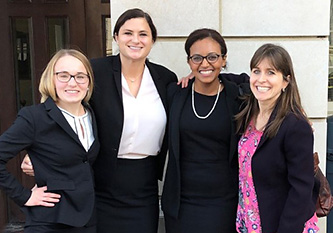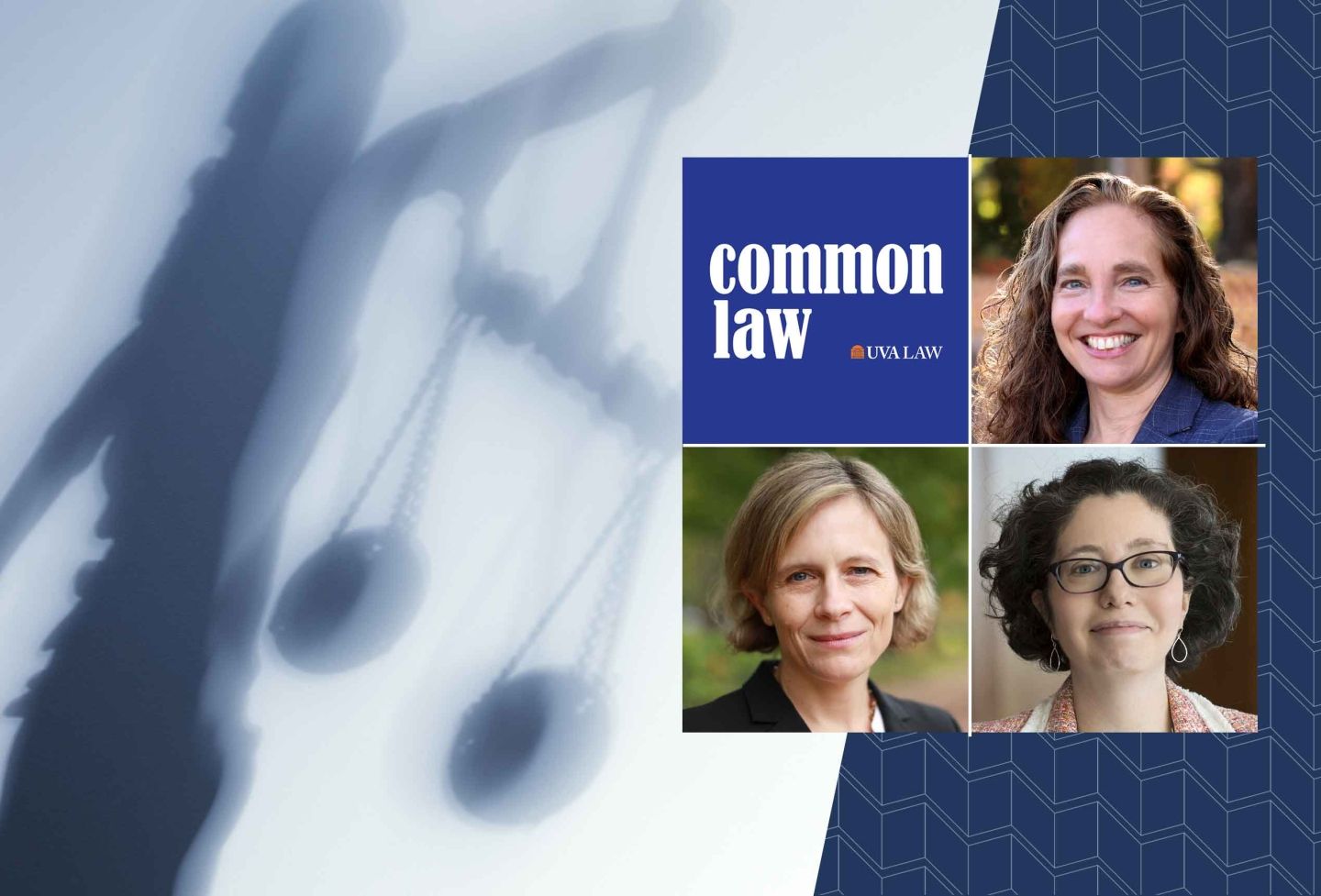Students taking part in Legal Aid Justice Center clinics in partnership with the University of Virginia School of Law worked to achieve justice for underrepresented communities during the recent school year, including for one man who was imprisoned for more than a year without due process.
In the spring, students in the Immigration Law Clinic won the release of an asylum-seeking client housed in the Immigration and Customs Enforcement detention center in Farmville, Virginia, who had been held for about a year without a bond hearing.

“Our client was a Mexican national who was an asylum seeker who came to the border and presented himself in a legal way,” said clinic supervisor and instructor Sophia Gregg. “He was an LGBTQ young adult fleeing incredible violence. There was really no reason he should have been imprisoned for such a lengthy amount of time.”
People seeking asylum are housed at the discretion of the U.S. Department of Homeland Security, which can detain individuals up to six months without a bond hearing, Gregg said.
Gregg, an attorney with the Legal Aid Justice Center in Charlottesville, which partners with UVA Law for many of its clinics, oversaw the student efforts, which included filing a federal habeas petition and memorandum of support March 30 in the Eastern District of Virginia. The filings contained a motion to expedite because of alleged unsanitary housing conditions and COVID-19 safety concerns.
“Within 24 hours of filing all of these motions, DHS released our client,” Gregg said.
The client was able to be reunited with his family here in the United States, and his asylum case is currently pending.
Over the course of the school year, the clinic helped all of its other imprisoned clients — about a dozen people who were housed either in Farmville or Caroline County federal detention centers — gain release as well.
In addition, the clinic sued the Rockingham County Sheriff’s Office in the spring on behalf of client FUEGO (Friends United for Equity & Grassroots Organizing) to uncover if the office’s cooperation with Immigration and Customs Enforcement broached any arrestee’s legal rights. A decision that may produce documents so they can further investigate is expected following a remote hearing set for July 20.
The eight students in the 2019-20 clinic were Jennifer Kelso ’21, Paola Camacho 20, Kevin Jackson ’20, Nicole Gilson ’20, Sam Zwingli ’20, Joseph LoPresti ’20, Will Slusher ’20 and Gia Nyhuis ’21.
Students in the yearlong clinic have multiple clients but handle at least one complicated case involving extensive client contact and legal briefing.

“I appreciated the chance to work directly with clients both on direct immigration cases and on cases like the FOIA petition that can help change how immigrants are treated more broadly,” said LoPresti, who presented oral argument on behalf of FUEGO. “I also enjoyed working with the clinic directors, Sophia Gregg and Tanishka Cruz [who taught fall semester], who helped show us how we can include immigration practice in our careers. I am planning to start at a firm this fall, and my experience in the clinic has helped prepare me to do pro bono work while I am there.”
In other Legal Aid Justice Center clinic news:
- In February, Employment Law Clinic students Ana Tobar-Romero ’21 and Zach Kuster ’21 spoke to the Virginia General Assembly. Tobar-Romero spoke on behalf of farm workers seeking to remove their exemption from minimum wage laws, and more broadly to increase the minimum wage for Virginia’s workers. Kuster spoke on behalf of low-wage workers who are forced to sign noncompete agreements.
- In the fall, students in the Civil Rights Clinic worked to strengthen the legal teeth of the new Police Civilian Review Board in Charlottesville. Josh Dupre ’21 took the lead in proposing legal language for the fledgling review board, working on behalf of local client the People’s Coalition. The City Council passed meaningful changes to five of 10 provisions based on the clinic’s input.
- Students in the Civil Rights Clinic also drafted Freedom of Information Act requests to try to obtain more details about the city’s Disproportionate Minority Contact study, which is looking at how people of color interact with the local criminal legal system.
- In the Child Advocacy Clinic during the fall, Erin Seagears ’20, Maggie Booz ’20 and Austin Schlatter ’20 convinced a court to modify their 17-year-old client’s sentence. Instead of spending the next five years in the Department of Corrections, the client will transition to an independent living facility and enroll in college.
Professor Sarah Shalf ’01, director of clinical programs, said these were just a few of the dozens of meaningful victories clinic students won on behalf of vulnerable clients in the Legal Aid Justice Center clinics.
“The partnership with Legal Aid Justice Center gives students the opportunity to connect with clients in the community and across the state, and to have a tremendous impact on their lives,” Shalf said.
Founded in 1819, the University of Virginia School of Law is the second-oldest continuously operating law school in the nation. Consistently ranked among the top law schools, Virginia is a world-renowned training ground for distinguished lawyers and public servants, instilling in them a commitment to leadership, integrity and community service.


